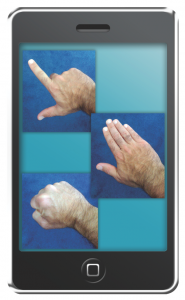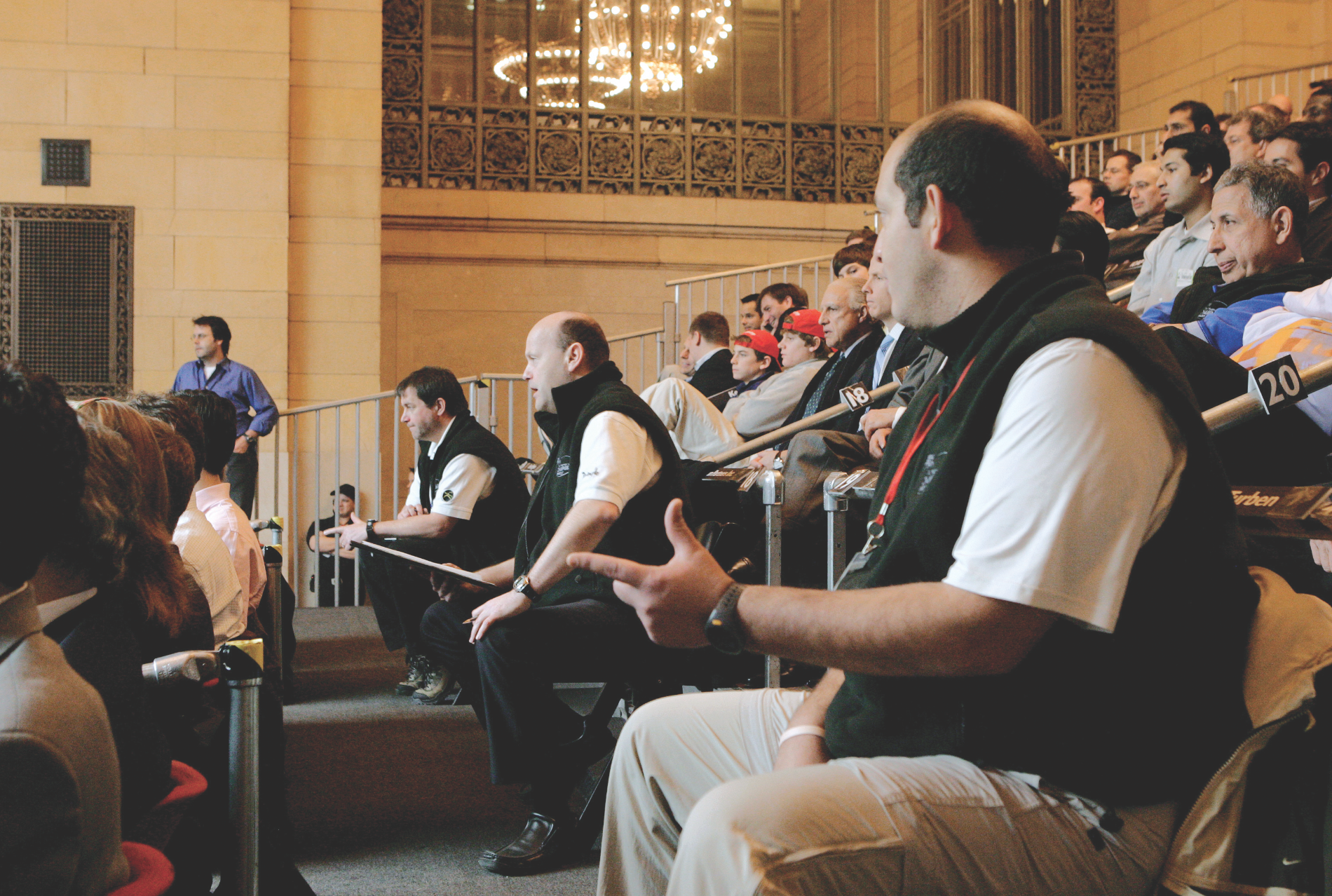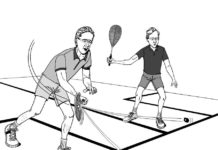
By Rod Symington, WSF Referees and Rules Committee
As I write this, I have just returned from hosting the 10th World Refereeing Conference in Odense, Denmark, and one of the most interesting and valuable sessions involved a presentation by Alex Gough, CEO of the Professional Players Association (PSA), on player-referee relations.
His comments were very encouraging. Since taking the helm at the PSA Alex has been striving to promote the sport of squash, as represented by the PSA, as a more attractive product. In the coming season, for example, more tournaments will be televised and a large number will be available for viewing through live-streaming on the Internet.
 As an integral part of this initiative to make squash more acceptable to a wider viewing audience, Alex is conscious that the image must also be improved: better conduct by the players and better communication by the referees are essential ingredients of the drive to make squash more “spectator-friendly.”
As an integral part of this initiative to make squash more acceptable to a wider viewing audience, Alex is conscious that the image must also be improved: better conduct by the players and better communication by the referees are essential ingredients of the drive to make squash more “spectator-friendly.”
Following the Conference Alex sent all of the PSA players a communiqué informing them of his positive impressions of the Conference and urging them to get involved in the dialogue between players and referees, in order to foster mutual respect and understanding. He also sent all the players a copy of the Rules.
Despite the economic recession the future of men’s professional squash looks good, and if, indeed, a new era is dawning in player-referee relations, then this bodes well for the sport at all levels. The PSA represents the pinnacle of squash ability, and what happens on the PSA Tour has a major impact on the game all over the world. Thus an improvement in player-referee relations at the highest level would have a beneficial effect on such relations in local and national events.
A further development will, no doubt, contribute to the improvement of squash’s image: we are now on the brink of seeing electronic devices for use in the Three Referee System. They already exist and have been tested, and it is only a matter of time before they become standard equipment at major events.
Since these devices are simple PDAs, there is no reason why they should not also come into much wider use in the very near future. The result would be that the decision of the Three Referees would be completely anonymous, and no one would know how each Referee voted. At major events the decision would be projected on a large screen, while elsewhere it would simply be announced.
Squash enthusiasts may be disappointed at the failure to get into the Olympics, but there are still many ways in which the sport can grow. The initiatives of the PSA are showing that there is reason for optimism: squash is entering a new phase of growth and of wider public awareness of the sport.





